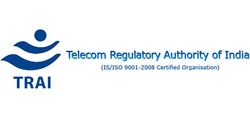July 15, 2016
Breaking news

In Senegal, the Autorité de régulation des télécommunications et des postes (ARTP ; English translation: Telecommunications and Posts Regulatory Authority) has, just like all regulators, inherent powers to impose sanctions. In general, the important thing is not only to exercise this sanctioning power but to exercise it in a way that reinforces the authority of the Regulator. In this perspective, the new Sonatel sanction decision is important.
As a sanctions always carry a heavier weight when people are made aware of it, the Director General of the Artp issued a press release, that has been flagged as particularly important, and held a press conference (in French) on a particularly serious sanction imposed following what the Regulator considers as the non-fulfilment of obligations stemming from formal notices (which, by the way, the telecom operator challenges on the merits).
On 21 November 2014 indeed, the Sonatel was given a formal notice from the Artp to respect consumer rights. As the code of telecommunications provides since its modification in 2014, operators shall "prendre les mesures appropriées de dimensionnement de leurs réseaux de nature à garantir à leurs clients un accès ininterrompu à leur service client commercial ou technique en respectant un taux d’efficacité minimal" (translation: "take appropriate measures to size their networks in a way that provides their consumers with an uninterrupted access to their customer service (sales service and technical support) which would respect a minimum efficiency rate") set by the Regulator itself- as to, namely, ensure that the right of consumers to be informed is satisfied (as regards billing mechanisms) and that their calls to consumer services remain free of charge. As the Regulator estimated that the Sonatel was not complying with such regulations, it conducted a formal investigation and notified a statement of objections to the operator, before sending on 28 January 2015 a second formal notice for the same reasons.
On 14 July 2016, the Regulator imposed a sanction on Sonatel since the it still estimated that the operator's behavior still was not leading to a compliant situation as regards the consumer right to be informed. The sanction, as stated in the Sonatel decision, is 13 billion 959 million FCfa (c. €20m), i.e., 15% of Sonatel's 2015 turnover. The sanction decision also provides that if the operator does not enforce it, an additional penalty of 10m FCfa (c. €15,000) per day will be charged.
The operator, however, challenges this sanction insofar as it estimates that its behavior is not to be blamed. To support its claim, Sonatel avails itself from the fact that upon reception of the first formal notice, it undertook a 'progressive compliance' with the requirements process as regards its network, then let the Regulator know about it, etc. It is henceforth to lodge an appeal.
The issue at stake, therefore, is to know whether the obligations on operators are obligations regarding the means used (that is to say, means obligations), or, conversely, if they are obligations to produce results (performance obligations). If they are means obligations, then the operator is right. However, considering the efficiency and effectivity principes that are closely linked with the teleological nature of Regulation, it is more likely that such obligations are performance obligations.
For instance, in France, the Commission Informatiques et Libertés (French Data Protection Authority- CNIL) considered on 1 March 2016!footnote-42 that the obligations on operators to have accurate and complete data are performance obligations and not mere means obligations.
Thus, there is probably more to follow with this Sonatel decision. The day the press release was issued, the operator stated it intended to lodge a hierarchical appeal before the Minister.
The next day, the Director General of the Artp stated in the press (in French) that under the Senegal law, the appeal could only be lodged before a jurisdiction, or before... the Regulatory Authority itself (request for reconsideration - in French : "recours gracieux").
This situation is thus a great reminder that new illustrations of the interplays between Regulation and Politics can always be found.
March 12, 2015
Breaking news

The regulation of electronic communications is carried in India by an independent regulator, the Telecom Regulatory Authority of India - Trai..
This regulation aims in particular to develop competition in an important domestic market. For the development of competition, should be encouraged not only increase in consumption, new uses, innovation, but also the competition between suppliers.
For this, the portability of telephone numbers is essential. We find this issue of portability in other sectors, such as financial or energy sectors, but it is in the area of the phone portability turned into right because it is through the number that the person is called, or classified, or recognized
This portability is imposed with difficulty by regulators. The situation in India demonstrates.
The principle of number portability in the mobile phone sector was made by a regulation in 2009 by the Telecommunication Mobile Number Portability Regulations of 23 September 2009, the eighth addressing this issue.
Almost every year, a regulation adds to the previous regulations on this point. Thus, February 25, 2015, the regulator adopted a regulation 4 pages carrying the 6th amendment of the original text.
After the new system adopted by the regulator at the request of the Government who sent a letter to this effect November 23, 2014, as apparatus shown to increase the effectiveness of portability, it is mandatory that from may 3, 2015, any subscriber can change operator while keeping his phone, regardless of his place of residence in the country.
The difficulty comes precisely from the geographical vastness of the country, divided into 22 telecom service areas (called "circles"), the customer physically moving from one to another still having difficulty keeping his number.
Beyond the difficulty of passing the enactment of a principle to the reality of its application, since 6 years apart from each other, here we measure the importance of geography in Regulation.
